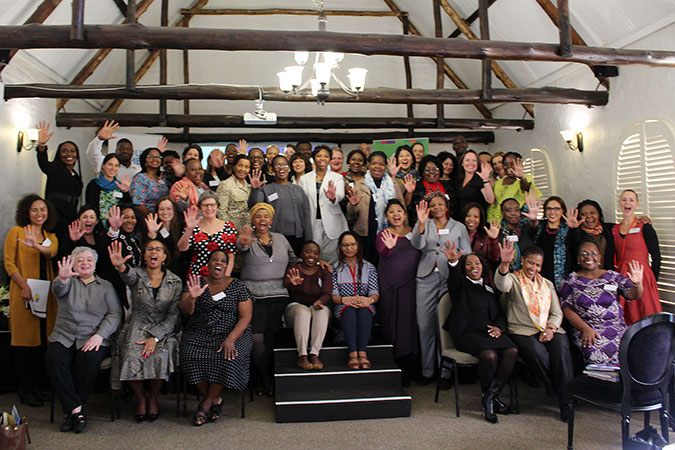UN High-Level Panel on Women’s Economic Empowerment meets in South Africa
Date:

The UN Secretary-General’s High-Level Panel on Women’s Economic Empowerment, together with UN Women, Oxfam and the University of the Witwatersrand, hosted a two-day regional consultation themed “Making Economies Work for Women in the South: What Will it Take?” in Johannesburg, South Africa on 11 and 12 August.
The first day’s consultation focused on the experiences of women working in the informal sectors; the challenges faced by women’s rights organizations and ways to address these challenges. In her opening remarks, Phumzile Mlambo-Ngcuka, UN Women Executive Director, said, “In many countries, policies are not informed by the real situation that women face, or they may not consider the [informal] sector at all. I would hope that one of the areas that comes out of this consultation is the prioritization of policy and representation.” Ms. Mlambo-Ngcuka also stressed on the need for basic infrastructure that women need to trade in the informal sector.
The second day’s consultation focused on macroeconomic policy frameworks and measures of productive work, gender differences in pay and working conditions and the impact of the care economy on women’s time and opportunities. In addition to identifying the main barriers to women’s full participation in the economy, the consultation shared scalable and replicable best practices from the global south.
The event brought together development partners, leading academics, women’s rights experts and leaders, including UN Women Executive Director Phumzile Mlambo-Ngcuka, Minister for Women in the Presidency of South Africa, Susan Shabangu, University of the Witwatersrand Vice Chancellor Adam Habib, and the African Development Bank’s Special Envoy for Gender, Geraldine Fraser-Moleketi, as well as representatives from civil society and the private sector.
Speaking at the event, Susan Shabangu, Minister of Women in the Presidency of South Africa, said: “South Africa’s Constitution recognizes gender equality, and as we celebrate the 30th anniversary of that Constitution and the 22nd anniversary of our democracy, we know that we have made progress. We are a country with more women than men in institutions of higher learning. We continue to implement new policies and legislations to address the imbalances in our society. But we are still concerned that the pace of transformation when it comes to women’s participation in our economy is too slow. Women are lagging behind when it comes to the workplace. Unwritten laws continue to serve as barriers to their progress: what we deem ‘professionalism’ continues to battle with motherhood, and other unpaid care work…As a country we are proud that South Africa’s National Development Plan is in line with Agenda 2030 and the Sustainable Development Goals and will work in line with these roadmaps to ensure that when it comes to gender equality, nobody is left behind.”
“These consultations are very powerful in shaping the work of the Panel, said Margo Thomas, Chief of Secretariat, UN Secretary-General’s High-Level Panel on Women’s Economic Empowerment. “We will produce an interim report in September, which will capture the essence of the issues, and frame the work going forward. When I listen in that context to the discussions that we had today, what comes across clearly is that whether we were speaking about macroeconomics, the care economy, and just about every topic that we touched on, I heard that what is most important is having the voices of the women who our policies will affect, be reflected in drafting those policies.”
The independent High-Level Panel on Women’s Economic Empowerment was established by UN Secretary-General Ban Ki-moon in March 2016 and is co-led by Costa Rican President Luis Guillermo Solís and the CEO of IKEA Switzerland, Simona Scarpaleggia. The Panel is expected to make action-oriented recommendations on how to improve economic outcomes for women in the context of the Sustainable Development Goals.
Related links: